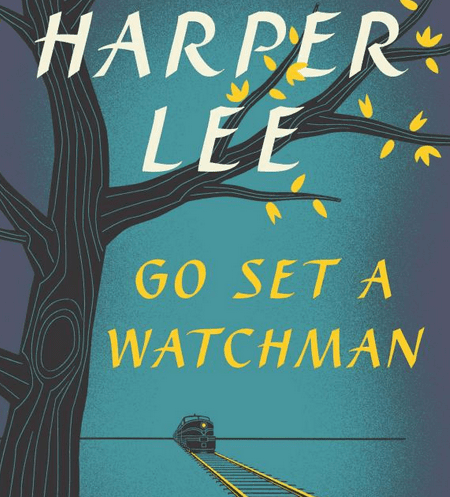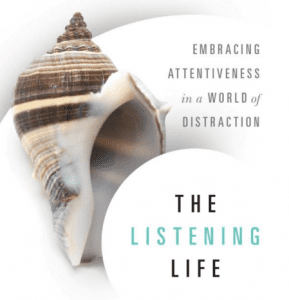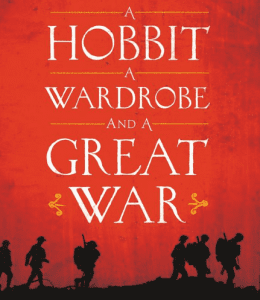My response to Harper Lee’s novel, Go Set a Watchman. Spoiler alert: you may learn things here you’d rather not know if you plan to read the novel. As with her previous novel, there’s plenty of n-words at work in the narrative. True to its day, illustrating over and over the systemic evil.
I’m no expert on Harper Lee, and even less an expert on fiction. But I give today some reflections on this penetrating novel. It deeply disturbed me. I found the ending far more realistic and ambivalent than I wanted. The book tells the story of racism and the desire by Southern whites to protect their segregationism to which they were blind.
There’s more than a scuffle about the publication of this novel. I’ve been enough of a fan of Harper Lee that I would read anything she’s written, even if it doesn’t live up to her classic novel. What could? I lean toward those who think it should have been published, but there’s a debate here that will be decided by whether you read it or not. I chose the group that reads it. I’m glad I did. I’m glad in part because it opens a window on the development of Lee’s craft and mind.
Let us propose that Harper Lee’s two novels, To Kill a Mockingbird and Go Set a Watchman, were meant to be read in succession — the former first. What then? Before we answer that question, let us counter-propose that the story we’ve been told is accurate: that Harper Lee originally wrote a novel, her editor (Tay Hohoff) asked for lots of revisions, Lee went to work to edit and edit … but finally Hohoff had her way with Lee and Lee started all over with a novel that took on the same basic subject – racism in the South — and that became To Kill a Mockingbird. Go Set a Watchman was the best she could do with the threads she originally created but she junked that novel once Mockingbird took its shape. Let us propose, also, either account of the two novels when it comes to character portrayal in the two novels.
Either way, and the second scenario is most likely the case, Atticus Finch moves from a man of moral and legal principled behavior to a compromised Southern racist who thought Brown v. Board of Education might launch radical equality at the poll booth. Atticus, as he tells his own story in Go Set a Watchman, was a “Jeffersonian Democrat,” which gave voting rights to those who were deemed (indeed) most likely to know what they were doing. Or in a particularly intense scene late in the book, Atticus presses this question on his justice-loving daughter, Jean Louise:
“‘What would happen if all the Negroes in the South were suddenly given full civil rights?… Would you want your state governments run by people who don’t know how to run them?”
Scout, or Jean Louise Finch, was a child observer and early activist for justice for all, including Southern blacks, in To Kill a Mockingbird, becomes the protagonist for racial equality and justice in Go Set a Watchman and a fierce, if at times slightly overcooked, critic of her father and all things Maycomb. She in some ways replaces Atticus for racial equality and justice. But when her father pressed his question on her, Jean Louise came back with ferocity and bitter satire — in the kinds of racist terms so typical of the South at the time of Lee’s writing:
You neglected [she tells Atticus] to tell me that we were naturally better than the Negroes, bless their kinky heads, that they were able to go so far but only so far only … When you talked of justice you forgot to say that justice is something that has nothing to do with people — … You sowed the seeds in me, Atticus, and now it’s coming home to you —
And speaking of God, why didn’t you make it very plain to me that God made the races and put the black folks in Africa with the intention of keeping them there so the missionaries could go tell them that Jesus loved ’em but for ’em to stay in Africa?
You deny that they’re human. [He asks how so?] You deny them hope…. You are telling them that Jesus loves them, but not much.
Her boyfriend from Maycomb County, Hank, was alongside Atticus Finch in the citizens’ council that was doing its best to preserve segregation, and after Jean Louise watched the meeting — reminding us of her watching the entire opposite narrative in Mockingbird — she morally punched out his lights in these words, after he asks her “What was he to do?”
Do? I expect you to keep your gold-plated ass out of citizens’ councils! I don’t give a damn if Atticus is sitting across from you, if the King of England’s on your right and the Lord Jehovah’s on your left — I expect you t be a man, that’s all!
She asks him how he can live with himself.
[He:] It’s comparatively easy. Sometimes I just don’t vote my convictions, that’s all.
Suddenly she heard someone behind her.
A dry, pleasant voice behind her said, “I don’t know why you can’t. Hypocrites have just as much right live in this world as anybody.”
These are the best scenes in the whole book — forcing racism to the front, forcing Jean Louise into the front of defending justice, but by the end of the novel the fierceness of Jean Louise seems to be softening into a kind of empathic accommodationism to the ways of the South. One is left hoping she might take up residence as an advocate against Jeffersonian Democracy in Maycomb. We just don’t know where she might land.
Whether the two stories are to be read consecutively or simply in the developmental narrative of Harper Lee’s own mind, the story of Atticus moving from an advocate of justice against racism to a compromiser in order to preserve Southern ordered living is as human a story as one can find. Virtuous characters do not always live up to their virtues. Some fade into compromise, and Atticus does in this novel due to his desire to preserve Southern conclaves — call it apartheid — and because he didn’t think Southern blacks were morally or culturally or civilly prepared to assume civic duties as were the whites. One thinks of Israel’s first king, Saul, or its second king, David, or any number of biblical characters along with countless others in American history who have lost their virtue. One also thinks Atticus belongs in the Roman system of elitism while his daughter, known to us all as Scout, was Athenian and desirous of equality.
Were it not that Atticus Finch has in the meantime become a paradigm of advocacy for racial justice by means of legal justice the story would be gripping. Or unnerving and frustrating and incomplete.
Go Set a Watchman has its moments — from its Mark Twain-like stories of Jem and Scout in the early portions to it’s powerful scene when Jean Louise observes at the council meeting the racist hypocrisy of her father, her boyfriend Hank, and many other white leaders in Maycomb plotting how to preserve racist systemic structures, and on to the powerful indictment of Jean Louise of her father in a late chapter vendetta — but the plot doesn’t run the emotions. What runs the emotions best are the scenes she sketches, the dialogues and episodes. The plot is little more than now a highbrow New Yorker Jean Louise returning to lowbrow, bumpkin Maycomb twenty years after the famous trial of To Kill a Mockingbird to discover ripening racisms, her shock at the discovery, and her impassioned decision to abandon family and town to simmering, evil racism. As mentioned already, the novel ends with the ambiguous account of a physical double-swat on the chops of Jean Louise by, and a conversation of Scout with, her uncle, Dr Finch, Maycomb’s “most learned licensed eccentric,” and his attempt to persuade her to stay in Maycomb to make a difference. There is not that much ambiguity, perhaps, as it appears to me she will stay and perhaps even accommodate herself to Southern racism. That ending collapsed under the weight of the hope it created — but perhaps that, too, was her point. Maybe the narrative needed more editing and sharpening …
There is a story that after writing Watchman and then converting it in a thorough rewriting into the classic Mockingbird that Harper Lee wrote a second novel — one to fill the gap between Watchman and Mockingbird — that the novel was stolen from her apartment, and that as is well known she never wrote another novel. This story has been told in Charles Shields, Mockingbird. I have no reason to doubt the story just as I have no reason to think it was meant to bridge the gap between Mockingbird and Watchman. We don’t know. I suspect rather that the classic novel was a full blown supersessionism of the earlier attempt and she left it behind her. But whether or not the two are to be read in succession or not, the development in Harper Lee’s mind of the race postures of Atticus is more than a little credible as an account of a sad human story. One worth telling — not uplifting but perhaps ultimately even more a kick in the shins about racism’s evil systemics.













